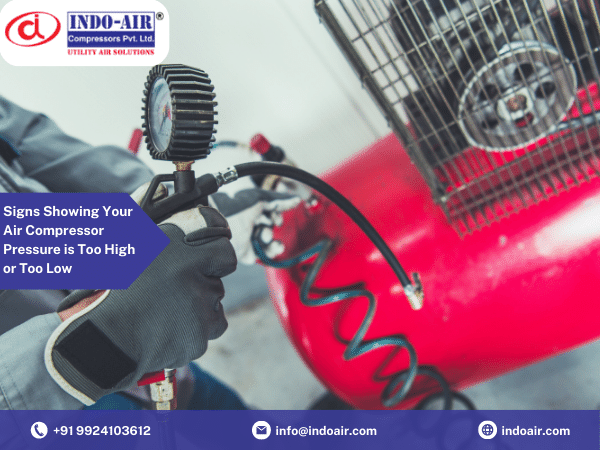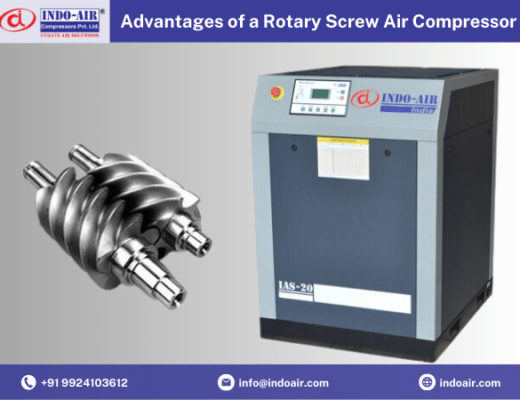Making sure an industrial air compressor has the appropriate air pressure is essential when using one. Contrary to what some operators may assume, according to air compressor manufacturers in Ahmedabad, running a compressor at a very high pressure actually degrades performance. Running an air compressor at a pressure over what is necessary for optimal performance consumes energy, reduces productivity, and might harm the compressor’s internal systems. If your air compressor’s performance is declining and you’re wondering what’s wrong with it, spend a few minutes looking for indications that the air pressure is either too high or too low. No matter how little the pressure problems may seem, fixing them can help to ensure the dependability and good performance of your compressor.
Signs Your Air Compressor Pressure Is Too High or Too Low
- High-pressure fluctuations: The occurrence of high-pressure fluctuations is one of the typical high volume high pressure air compressor warning indications. If you see these variations, the pressure of your air compressor is definitely too high for your performance requirements. Poor pressure control on the equipment frequently causes high pressure variations. When the user does not properly monitor the pressure, inadequate pressure management might result in excessive pressure and changes in that pressure.
- Hindrance in pressure: The air pressure is likely too high if your air compressor is facing pressure restrictions. Inadequate machine pipes or inappropriate attachments can cause pressure constraints. Components including hoses, filters, and end-use connections frequently have defective pipework and attachments, which can lead to the air compressor overcompensating. As these parts become confined, the operator must increase the air pressure in the air compressor to make up for it, which causes an excessive amount of pressure to build up throughout the compressor.
- Artificial Storage With Increased Pressure: Your air compressor’s air pressure is likely too high if it is producing artificial storage with increasing pressure. Insufficient storage frequently results from excessive pressure in an air compressor, especially when the unit has inadequate pressure management. The air compressor occasionally has insufficient store receiver capacity, which is a critical problem. Because of the inadequate compressor control in this case, pressure must be increased to provide artificial storage.
- Unattended Technical problems: The air pressure is likely too high if undetectable technical problems are present and the compressor operator increases the pressure to make up for them. One such instance is when an air compressor has minor leaks. Without realising there are leaks, the operator is likely to increase the pressure in the air compressor to make up for the loss of pressure. This might result in high air pressure all around.
- Failing to attain cut-out pressure: Failure to attain the specified cut-out pressure is one of the most typical low-pressure air compressor symptoms. The air pressure is probably too low if your air compressor seems to operate continuously without reaching its cut-out pressure, which is the pressure at which pressurisation ceases.
High & Low Pressure Air Compressors
Typical two-stage reciprocating compressors have a maximum operating pressure of 175 psi, whereas rotary screw compressors have a range of 90 to 125 psi. High pressure compressed air in the range of 45 to 60 psi is needed for some applications. A rotary screw compressor made for this range of pressures will have a smaller motor and use less energy than one made for greater pressures. For this range to operate satisfactorily, special design is needed. Several applications demand compressed air at 200 psi, but they can only utilize a modified rotary screw compressor because of space, noise, or cost restrictions.




